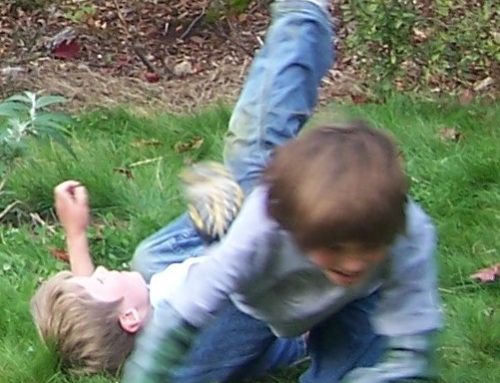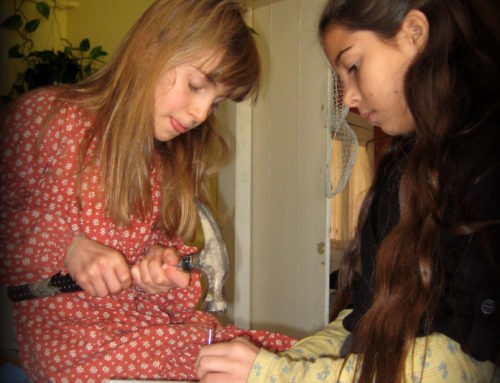Pursuing One’s Own Interests
The best preparation for a meaningful and productive future is a meaningful and productive present
Too often, childhood is thought of in terms of preparation: “Do this now, even if it doesn’t feel connected to your most pressing interests and concerns, because later on you’ll find it useful.” Helping children to figure out what seems interesting and worth doing right now, in their current lives, helps them develop self-knowledge and experience at figuring out what kind of life they want and what they need to do or learn in order to create that life. In other words, it’s the best preparation for their futures.
(adapted from North Star: Self-Directed Learning for Teens 7 Guiding Principles. )
Kids know what interests them, what they are curious about, what they enjoy
An incredibly limiting and devaluing belief we hold about children and their (in)ability to be responsible for themselves is that they are not capable of evaluating their own interests in such a way that would prepare them for their future life as adults. This assumption is often used as justification for deciding what and how kids should learn and when and imposing our ideas upon children without taking into account their preferences and opinions. The cultural mechanism for such imposition is most often school, though it is also perpetuated through family and culture. (My intention in this post is not so much to examine school and education-there are many others who have explored the subject and who’s work I’d recommend-but I do want to note that most schools are highly undemocratic institutions in which kids are acted upon and have little scope to be actors in their own lives.) We have assumed that anyone who does not receive the body of knowledge and information that the state has deemed necessary will be ill prepared for adult life and have his options for a fulfilling life limited. Most of us don’t really examine this assumption.
Helping kids toward a meaningful future by listening to their opinions and interests in the present.
Such an assumption creates the narrow view that exposure to a certain (state sponsored) education leaves one’s future open while lack of that exposure closes it. If we want to preserve children’s autonomy and self-determination and to ensure the possibility of pursing a life in adulthood that has interest and meaning to them, we must allow them to be actors in their own lives and to evaluate their own interests and passions now, not just when they become adults. In some ways requiring a child to attend school and be exposed to all sorts of things that are of no interest to him at all is actually limiting his opportunity to learn and explore the things that interest him the most. I know a young man who left school after the sixth grade to follow a more self-directed educational path. He enjoyed music and was able to devote much time to it. By the time he was eighteen he was a well-established musician. Had he been in school he would not have the same time for such pursuits and may have found his options in the musical field limited, or at least having to contend with a slue of irrelevant requirements and demands.
Expanding or Limiting Opportunity?
To assume that kids can’t be actors or evaluate their own interests and not to consult them until they are eighteen is in itself a form of limitation. The diversity of life, life options and learning are near infinite and to assume that a state-sponsored curriculum is going to expose a person to all those things that she is going to want to pursue in the future seems absurd. This also supports the assumption discussed above that childhood is preparation for life, not life itself. Young people may not know what their future directions or interests will be (and there may be many different interests at many stages of life), or what they may want or need in the future, but this does not mean that they cannot evaluate their interests or have a voice in the current use of their time. The best way to insure that they are able to pursue a life that is fulfilling to them is to allow them to have some say in what interests them in their lives now. They are more likely to live a life of self-determination and to follow a direction that interests them as adults if they are allowed to pursue what they are truly interested in and not what the state has decided they need to know. People who know them and have an invested interest in them can certainly support them in considering the ramifications of their choices. Children can be helped to consider future needs which, through lack of knowledge or experience, they may have not thought of themselves. “It is only individuals and those close to them who have legitimate authority to speak on what they need to know to grow up right” (Matt Hern), not the state, or some politician or educational authority that shares no connection and no relationship to that person.
How about you? What was your experience? How much of what you learned in school supported your living the life you wanted or becoming the person you wanted to be? How much was irrelevant?
Were you consulted about what your interests were, about what you wanted to learn? How much say or input did you have? Do you think it would have made a difference if you had more?
What are some things you wished you’d learned in school? What are some things that your education kept you from doing or learning?
I’d love to hear your thoughts and comments, please share below!:


Leave A Comment